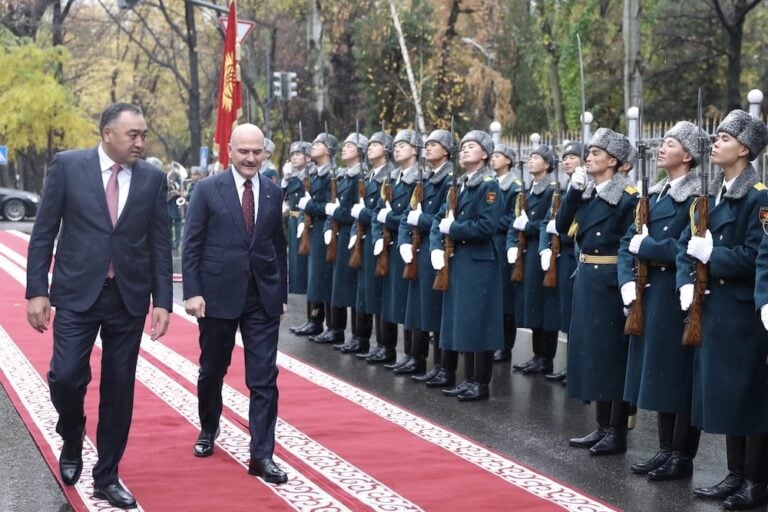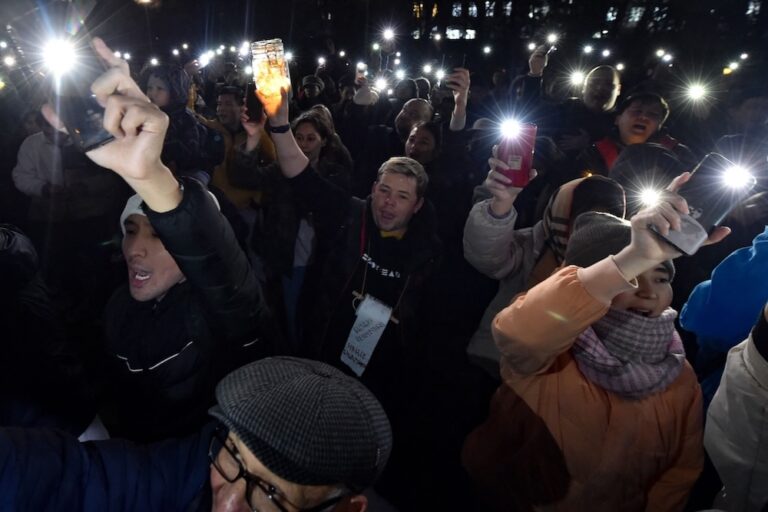Askarov, 69, was serving a life sentence imposed after an unfair trial on politically motivated charges, for which he was arbitrarily arrested and tortured. He was in poor health and activists had been calling for his release due the threat of COVID-19.
This statement was originally published on hrw.org on 25 July 2020.
Human rights defender, Azimjon Askarov, has died in prison in Kyrgyzstan, Human Rights Watch said today. Askarov, 69, was serving a life sentence imposed after an unfair trial on politically motivated charges, for which he was arbitrarily arrested and tortured.
Askarov’s death in state custody is a violation of his right to life, for which Kyrgyzstan’s authorities are wholly responsible and have to be held accountable. Askarov’s health had deteriorated significantly during his imprisonment, and he fell more severely ill in the days before his death, although the formal cause of death is yet to be determined. It is essential that there is an effective, independent investigation into Askarov’s wrongful imprisonment, denial of adequate medical care, and death in custody.
“Kyrgyzstan’s authorities bear full responsibility for Askarov’s death,” said Mihra Rittmann, senior Central Asia researcher at Human Rights Watch. “They had every opportunity to end his wrongful imprisonment, but each time they flouted their obligations. They intended for him to die in prison, and so he has. Our deepest condolences go to Askarov’s wife, who for 10 years has fought for her husband’s freedom, and to his family and colleagues.”
Askarov was the director of Air, a human rights organization in southern Kyrgyzstan focused on documenting prison conditions and police treatment of detainees.
Askarov also documented violence and looting in his home town of Bazar-Korgon during the deadly inter-ethnic violence that started in southern Kyrgyzstan on June 10, 2010. Several days later, police arrested Askarov on charges related to the killing of a police officer in Bazar-Korgon during the mayhem.
Askarov’s trial was marred by multiple incidents of violence and procedural violations. Courts repeatedly refused to investigate Askarov’s credible allegations of torture in detention. Despite – or as a result of – being denied a fair trial, on September 15, 2010, Askarov was sentenced to life imprisonment, which was upheld on appeal that December.
Since 2016, Kyrgyz authorities defied a United Nations Human Rights Committee ruling to immediately release Askarov and quash his conviction. The committee had found that Askarov was arbitrarily detained, tortured in custody, and denied a fair trial. The committee’s decision served as grounds for the Kyrgyz courts to re-try the case, but they upheld his life sentence. In his final appeal, in May 2020, the Kyrgyz Supreme Court again upheld the sentence.
Kyrgyz authorities chose not to release Askarov on medical and humanitarian grounds, despite his cardiac and respiratory problems and the added risks posed by the Covid-19 pandemic.
Kyrgyz authorities also rejected numerous diplomatic efforts, including by the European Union and its member states, and by the US administration over the years to have Askarov freed.
Askarov’s lawyer, Valeryan Vakhitov, told Human Rights Watch that when he visited Askarov in prison on July 22, his health had deteriorated in the previous 10 days. When Vakhitov saw Askarov, he was unable to walk on his own, had no appetite, and had stopped eating, and his skin was yellowish. Vakhitov said Askarov was unable to sleep and that he was breaking out in sweats due to his spiking body temperature. On July 24, prison authorities transferred him to a different prison with better medical facilities, where he died. Vakhitov has requested the authorities to provide him with an official report on the cause of death.
Due to the Covid-19 pandemic, Askarov’s wife had been unable to visit him in recent months. Because authorities refused to release Askarov on humanitarian grounds, he died without any family to comfort him.
Vakhitov told Human Rights Watch that he had passed on the organization’s greetings to him and told him that he was not forgotten, and that people across the world were still fighting for him.
Kyrgyzstan must abide by its obligation to ensure an effective, independent investigation into Askarov’s wrongful imprisonment, treatment, and death, for the purpose of holding those responsible for the violations of his rights accountable. Askarov’s family is entitled to a full remedy, including compensation. UN human rights bodies, the EU, and Kyrgyzstan’s other international partners should ensure that justice for Askarov remains a key point on their agenda with the Kyrgyz government.
“Kyrgyz authorities are responsible for Askarov’s death. They tortured him, wrongfully denied him his liberty and justice for 10 years, and, in his final days, cut him off from family,” Rittmann said. “If they think Askarov’s death ends a problem for them, they are gravely mistaken – his death is now their legal, diplomatic, and moral problem.”



